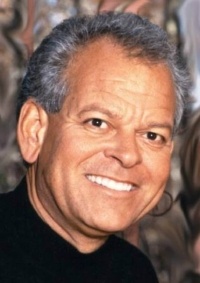c. 2008 Religion News Service
(UNDATED) When Southern Baptists meet for their annual convention in Indianapolis this June, they will have the opportunity to cast ballots for the highest number of contenders for president in the last three decades.
At least six leaders with a range of experience _ in big churches, small churches and the mission field _ are expected to be nominated when some 9,500 Southern Baptists gather June 10-11.
The wide-open nature of the race may indicate an opening for fresh leadership in the nation’s largest Protestant denomination, observers say, or the graying of a generation of conservatives who have dominated the SBC since 1979, the last time there were so many candidates.
Whoever is chosen will succeed current SBC President Frank Page, a South Carolina pastor who was first elected in 2006. Several candidates attributed Page’s dark-horse win as the start of a new season in Southern Baptist leadership, where it’s harder to guess who will be the next president.
“I think that this year’s election is really going to tell us whether or not the Southern Baptist Convention is really changing or whether or not the election of Frank Page was just a bump in the road to the establishment,” said one candidate, the Rev. Les Puryear, 56, pastor of Lewisville (N.C.) Baptist Church.
Missions expert Avery Willis, 74, of Bella Vista, Ark., another candidate, agreed.
“Until a couple of years ago, it was pretty much cut and dried that one group would say we are supporting this person and no one else would run,” said Willis, known for creating a “Masterlife” series on developing a mature Christian life. “When Frank Page was elected, there was a sense that there was more openness.”
In 1979, the last time the president’s race was so contested, the election of the late Adrian Rogers of Memphis, Tenn., marked a staunchly more conservative turn for the denomination.
Prior to the conservative resurgence sparked by Rogers, five or six people nominees would typically stand for election, said Bill Sumners, director of the Southern Baptist Historical Library and Archives in Nashville, Tenn.
“You could nominate your next-door pastor,” Sumners said. “It would be a wide range of people who might be nominated. There was, for most years … a runoff.”
Some Southern Baptists, such as Wade Burleson, a pastor in Enid, Okla., who used his blog to question some of policies of the SBC’s International Mission Board, predict a runoff again this year.
“People are not afraid to speak their mind anymore, which is healthy,” Burleson said. “I think for a few years there was such a demand for lockstep conformity that if you ever said anything that contradicted status quo of those in leadership your loyalty was questioned. I think that is over and it ought to be over.”
But, with the deaths of prominent pastors like Rogers and the late Rev. Jerry Falwell, Southern Baptists are also seeing a generational shift in leadership.
“There are also people concerned about the fact that the statistics of the denomination, long a status symbol … are either stagnant or showing decline,” said Bill Leonard, dean of Wake Forest University Divinity School in Winston-Salem, N.C.
SBC officials recently announced that reported baptisms _ 345,941 in 2007 _ were the lowest in a decade, and membership had dropped slightly to 16.27 million. Those figures appear to concern of many of the candidates.
“We need to get back to being the people of the Book as it pertains to church planting, global missions, sharing the gospel with our neighbors and with the nations,” said the Rev. Johnny Hunt, 55, pastor of First Baptist Church of Woodstock, Ga., one of the candidates.
The Rev. Frank Cox, 52, pastor of North Metro First Baptist Church in Lawrenceville, Ga., focused on the finding by denominational officials that nearly one in four SBC congregations reported zero baptisms in 2006.
“We need to focus on evangelism with integrity as a convention,” said Cox, who is also a candidate.
(OPTIONAL TRIM FOLLOWS)
While Hunt and Cox both serve large Georgia churches that have grown substantially under their leadership, two other candidates represent the perspective of non-Southerners in this predominantly Southern denomination, as well as small pastorates.
“I believe that I can bring the small church mentality,” said Pastor Wiley Drake, 64, pastor of First Southern Baptist Church of Buena Park, Calif. Drake may be best known for leading a Baptist boycott of Walt Disney World.
Bill Wagner, 72, the sixth candidate, pastors two small churches in Northern California and served as an overseas missionary for 32 years. He has emphasized reaching beyond the South to members of minority groups.
“We have closed ourselves off from them and we have closed ourselves off from many of our people doing work in the other parts of the United States,” he said. “We just need to broaden the tent.”
KRE DS END BANKS
Photos of Puryear, Willis, Hunt, Cox, Drake and Wagner are available via https://religionnews.com





